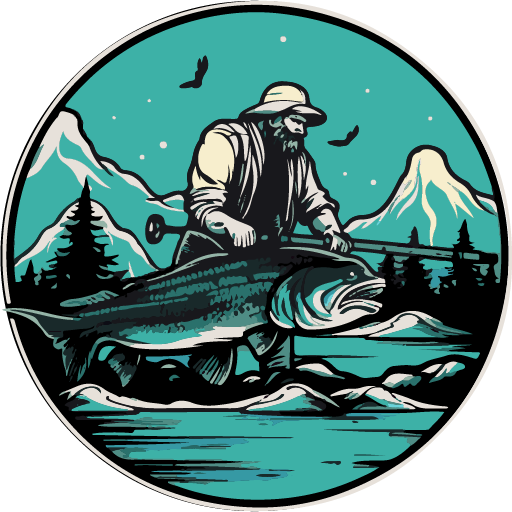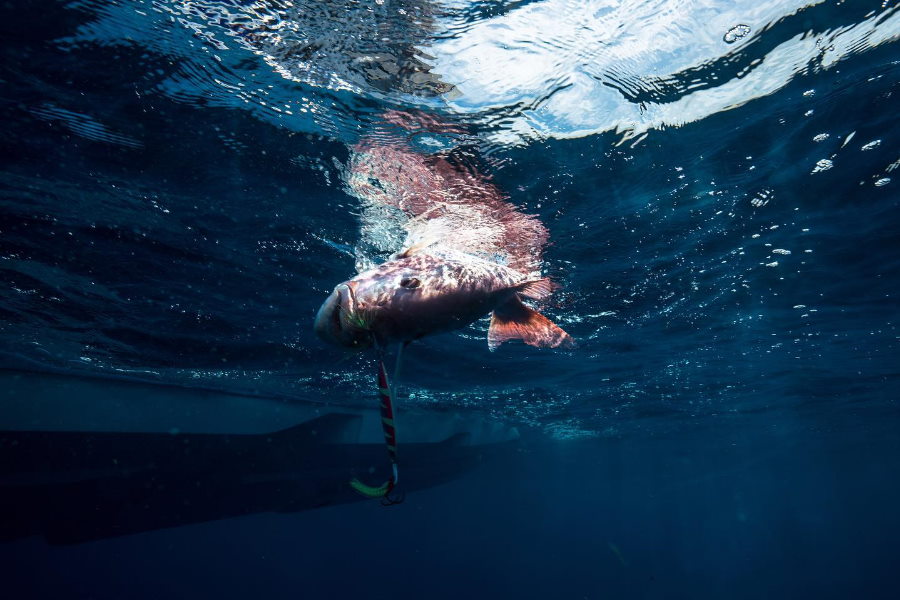Is Fishing a Sport or a Hobby?
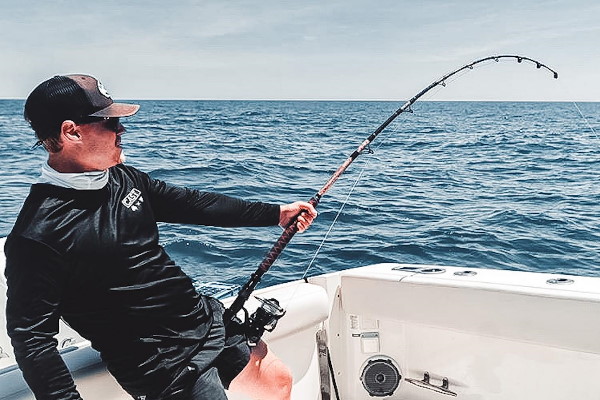
Is fishing a sport? This is a question that has been debated for many years.
The short answer is, it depends. While fishing can be competitive and require athleticism, some might argue that its non-competitive nature means it is not a sport.
So, I am here today to give you a conclusion. Keep reading to find out.
Whether or not you believe fishing is a sport, one thing is for sure: it can be a fun hobby enjoyed by people of all ages.
So if you’re looking for something to do outdoors this summer, why not give fishing a try? Who knows, you may fall in love with this popular pastime.
Of course, in this blog post we will also give you the answer to the question: Is Fishing a Sport?
Fishing in History
The history of fishing is long, but it all began with a need to feed one’s family. In some parts of the world today this still holds.
And here, we are talking about fishing using tools such as rods or similar devices rather than commercial-scale nets which can capture tons at once!
So, in history: Is fishing considered a sport? Since when is fishing considered a sport or hobby?
There were many changes made to this industry over time.
In times gone by – especially during Europe’s enlightenment period (the 1400s)- individuals, Hunter gentry started seeing employing these methods not just because they needed food now more than ever before.
Instead, over time, people discovered how much pleasure certain types introduced into sports could bring them while exploring new territory.
As more and more individuals all over began to enjoy this sport, it eventually became something available for middle-class families in America during their leisure time.
When more people started to enjoy fishing as a hobby, it soon became an industry and part of the tourist attractions in many destinations.
The 1960s saw the rise of bass fishing tournaments.
In addition, though not solely because new materials such as monofilament lines were invented which led to components like rods/reels etcetera afterward.
Developments like these made it possible for this sport to be seen as requiring skillful know-how, which many people wanted their prowess in arms with regards to proving themselves best.
In modern times, competitive fishing is popular in many countries around the world. Fishing tournaments are held each year, with anglers competing to catch the biggest and best fish.
Definition of Sport and Hobby
Sport is defined as an activity involving physical exertion and skill in which an individual or team competes against another or others for entertainment.
On the other hand, a hobby is an activity that someone does often for pleasure, typically during their leisure time.
So, to answer the question “Is fishing a sport?” It depends on how you define the term.
While competitive fishing certainly meets the criteria of being a sport, recreational fishing could be considered more of a hobby than a sport.
Fishing may be a “sport” unlike any other, but it certainly has its unique place in outdoor recreation.
No matter what you choose to call it, there’s no denying that it can be fun and provide hours of enjoyment! So why not give it a try this summer? You may just find yourself loving every moment out on the water.
Fishing is a Sport
“Is fishing a sport?”
It may be not very clear, but we can say that fishing is a sport.
It requires skill, patience, and knowledge. It can be enjoyed for its leisurely qualities or participation in competitions can add an extra layer of excitement.
Whether you’re out on your own or competing against others, there’s something special about spending time with nature and angling for a prize catch.
In conclusion, regardless if you’re looking for something to do at home or out in the wild, fishing has been around since ancient times.
It has continued to evolve into various forms like bass tournaments which are popular today.
Even though some may argue whether or not this recreational pastime is a sport, it still can be enjoyed by beginners and experienced anglers alike.
Most importantly, it allows you to enjoy the outdoors, relax and connect with nature amazingly.
So grab your tackle box and go fishing today! With these points in mind, I hope you now understand why fishing could indeed be called a sport.
Why Is Fishing a Sport?
Now, why is fishing a sport?
Both require physical and mental skills: strength, agility, hand-eye coordination, strategy, and patience. All these qualities make fishing an enjoyable pastime or even a competitive sport.
Skill
The essence of sports is skill. Whether you need to learn how to throw or kick a ball, there’s quite an involved process in learning these skills, and some people never actually achieve it despite their best efforts.
Fishing is a skill that takes time and patience to master.
If you’re just getting started, don’t worry about catching every creature on your line. Instead, focus all of the efforts on learning how each one works so that when something does bite it feels like an earned victory!
Casting is one of the skills that come to mind when someone mentions fishing.
You need some force, timing, and hand positions for it to work best but this becomes more complicated with fly-fishing where precision rules supreme.
As well as learning how many feet from your target you should be when trying out those long casts!
The cast is not where the skills end for fishing.
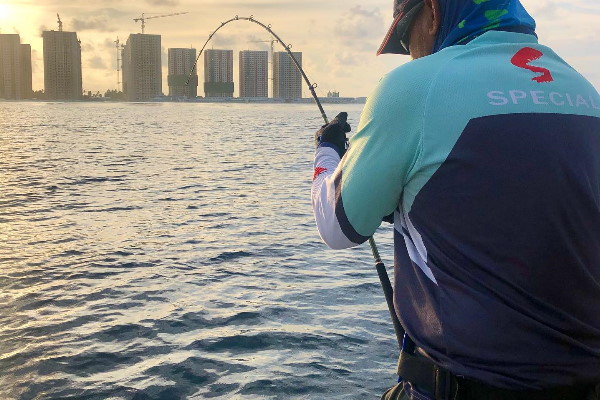
You will also find other factors involved in catching fish, such as setting up correctly and reeling quickly when a bite happens so you don’t miss it or let your prey slip away from under you!
Fishing is a skill that requires more than just getting out there and casting.
There are many steps involved in catching even the easiest of fish, like waiting for them to bite on your bait or reeling too quickly when you do finally hook one!
Fishing is more than just finding a fish, hooking it upright, and getting thrown in the water. People say that: Fishing is hard, but it’s even harder to get in the boat.
There’s an art to fishing that only takes one with years of experience can master!
The best fishermen know that patience and focus are key when trying for a fish!
They also understand how subtle changes in technique can make all of your efforts worthwhile or throw them away altogether with one wrong move.
You’ll see how different fishermen think about this pastime when you’re out there on your next adventure casting lines. But don’t forget: if we want these sports done well then everyone needs some skills as well.
Rules
To play the game of fishing, you must satisfy some prerequisites.
Like any sport that implies rules and regulations. Fishing as well, all participants should strictly follow these guidelines or be kicked out during gameplay.
Fishing can be a dangerous game if you do not follow the rules.
There is always an opportunity to get into trouble and suffer fines or worse penalties, so it’s essential for us as fishermen, especially those who want their hobby recognized by law enforcement agencies across America (and others).
Take note: these regulations exist to protect marine life in which there is a set limit for various species inside certain areas based on their length.
Winning competitions means nothing without staying within your limits.
To fish, you need a license and must follow local government regulations. Not doing so can result in hefty fines!
Competition

Although fishing can indeed be a rather solitary sport, there are numerous competitions for those who love fishing and enjoy the company of others.
The first Bass Tournament in America took place back in 1967 and involved over 100 anglers competing in Arkansas!
Nowadays, you’ll find 30-50 thousand such tournaments each year–with some lasting 6 hours up to several days long depending upon how much time you prefer to spend by the lakeside.
Such as the Walmart FLW Tour was named after Forrest L. Wood of Ranger Boats fame. The top prize of the Forrest Wood Cup is $1 million. Both tours are nationally televised on networks like ESPN and Fox Sports Net, and covered extensively by news media.
To enter a Pro-level tournament, you must first prove your worthiness by competing in club-level events.
There are no specific regulations that prevent novice anglers from participating, but they have yet to master all of the skills needed for this type of scenery.
So it’s best if we start them off on an easier surface like bass fishing where experience can help out!
Waters are often very different from one another. To compete at a high level, anglers need not only practice but also learn about the specific environment around their fishing spot so they can be successful in tournaments across various lakes and habitats!
Fishing tournaments are as competitive and exciting as any other sport. There’s big game fishing, fly fishing for panfish on lakes or rivers, deep sea fishing, ice fishing, and more.
Fishing tournaments are no different than any other sporting event.
The winner gets the trophy, there are sponsorships and all of these things make them very similar to play in sports like football or baseball for example!
Improves physical health
This hobby-turned-sport that we all know as fishing not only keeps us physically fit by helping us burn unwanted calories.
But it also allows us to take advantage of its holistic approach in helping us keep a healthy mind and body.
All kinds of sports enable everyone to have some.
The hobby-turned-sport that we all know as fishing not only helps us burn unwanted calories but also allows for a holistic approach in terms of mental health and body composition.
All types of sports have some cardiovascular and high-intensity workouts.
However, many still think this is just about sitting on a cooler with bait or waiting patiently while relaxing together during downtime – well there’s more than what meets the eye!
Fishing is a challenging, physical activity that tests our balance and strength.
Even when battling small fish, anglers have to use their back arms/legs, etc., which can prove beneficial towards physical fitness due to the high-intensity activity required from catching them.
When we hike up steep slopes or riverbanks to find new places for wetting lines it builds muscular fitness in both legs as well as feet.
Don’t forget how casting will test accuracy with hand-eye coordination while reeling repeatedly requires precision too!
Plus fishing provides benefits similar to those offered by meditation – which means you’ll be less anxious if you are someone who fishes often enough (and isn’t just doing so because they need an outlet).
Fishing gives people relaxation due to its relaxing nature, where you can cut loose from life’s stresses without having any worries about what might happen next since all focus must remain on staying focused during this time spent underwater – even though many believe otherwise.
Fishing is a sport that requires toughness and endurance.
The cortisol levels in people who fish are often lower than those without, which can last up until three weeks after their trip.
This may be due to its calming effect on the body’s production of stress hormones like adrenaline or noradrenaline.
It’s also been shown how fishing has helped many individuals suffering from PTSD because they’re able to release some tension through strenuous activity while releasing endorphins into their bloodstream – creating an overall sense of well-being during and after the event.
The physical benefits of fishing have been proven through research. The activity has been used as a therapeutic activity for veterans suffering from trauma since it is low-impact and repetitive.
The U.S Veterans Health Administration even takes fly fishing into account when providing rehabilitation therapy because of its calming effect on patients who have difficulty with movement or relaxation activities due to injuries sustained during war zones.
Risks
Sport fishing is not for the faint-hearted. You face all sorts of hazards and dangers, just like in car racing or basketball – there’s a risk that you will get injured if your efforts go into overreaching what is expected from an athlete.
Offshore fishing is risky. You can’t just go into it without the proper training, equipment, and crew to keep yourself safe from harm!
Requires strength and strategy
To be an effective angler, you need more than just skill and knowledge. You also have to possess physical strength or endurance to pull these huge fish out of the water with ease – it takes longer and it is much harder than people think!
Regular training will help improve your staying power so that when faced against strong opponents such as big carp who can fight back by biting through the line quickly (and causing lots of damage), we know who’ll win eventually: us because we are prepared!
From staying on the move and adapting to different water conditions, anglers need to have a strategy that works for them to catch their desired prey.
Whether it be using live bait or artificial ones, you will still need some level of knowledge in terms of fish habitat and behavior so that your methods don’t fail you.
Leadership, perseverance, and discipline
Fishing has many benefits and can be an exciting activity for people of all ages. As you improve your skills, leadership qualities develop as well!
You will learn how to strategize with other fishermen to win tournaments or compete against others on the water- requiring patience but giving back even more than before when successful.
Tournaments offer great thrills that require us to take our comfort zones away by learning new techniques.
This challenges us further while also improving self-confidence because we’re doing something different from what most would think about doing the first time around.
Lastly, enduring long hours of fishing requires discipline. You need to be able to stay motivated and focused even when things aren’t going your way for success in this sport!
Sense of accomplishment and joy
Fishing is one of the most relaxing and enjoyable pastimes you can get involved in.
Whether it be to combat stress, spend quality time with loved ones or friends, find your ultimate sanctuary from life’s troubles—or even join an angler competition!
Fishing offers so many benefits that anyone would enjoy if they tried fishing just once.
Angling is more than a pastime; it’s an experience that takes you back to the essence of humanity.
So you don’t have to wonder “Is fishing a sport?” Simply try and enjoy it.
Anglers and athletes have a lot in common
The show “Wicked Tuna” is an interesting look into the lives of professional fishing enthusiasts.
The ones who go after monsters, like big game fish, for example, can be seen as tired and sore from their fights with these creatures, but they still keep at it because nothing compares to catching a monster!
I bet after an exhausting fight with a monstrous creature, they are more tired and sore than any athlete could wish for in their worst Olympic nightmares! Anglers and athletes all get pretty sweaty during matches.
Fishing is not an easy sport. It takes skill, patience, and most importantly – the strength of mind to be successful at fishing!
It would help if you had all these things for you to perform well during your time on the water as well as after it’s over with poor results or no catch whatsoever (even though this may seem like luck).
Sleep deprivation can interfere significantly while out there performing because the lack thereof will make us miss things due to slower reflexes.
To put it simply, when we don’t get enough sleep or our diet suffers from a lack of nutrients like protein and iron (both crucial to angler success). There will inevitably be consequences, such as slower reflexes which can lead us to miss possible opportunities while fishing.
Achieving optimal performance requires more than just physical fitness; It involves overall health too!
The one thing that will keep you going on a fishing trip is a well-balanced diet.
This begins with our choices of healthy food like bacon and eggs for breakfast, lunch consisting of either seafood or vegan pots made by plant-based recipes such as peanut butter and jelly sandwiches, dinner might be something spicy like taco rice paired perfectly against an ice cold beer–we never skimp out when it comes to hydration!
What’s interesting though? Some anglers choose to carry granola bars while others rely solely upon sunflower seeds/peanuts – whatever suits their needs best!
The key here isn’t so much what we eat but rather how often and deeply.
Based on the above, do you have the answer to “Is fishing a sport?” not yet?
Sport Fishing vs Leisure Fishing
The best answer to “Is fishing a sport or a hobby?” It includes both of them.
Sport fishing and leisure fishing are two different things. Sport fishing requires knowledge of the game, skill, patience, and preparation whereas leisure fishing is more about relaxation and enjoyment.
Leisure fishing
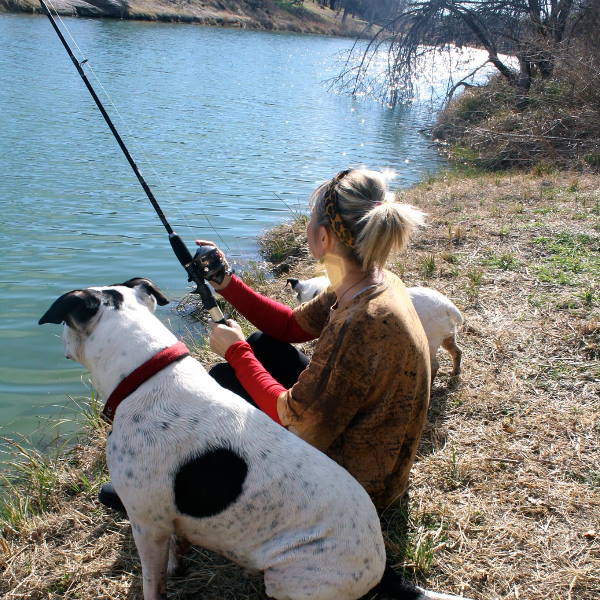
Leisure fishers on the other hand just want to enjoy their day on the water, as they don’t have any pressure or expectations – they’re simply there to unwind and find solace amongst nature’s beauty.
They may not be looking for that same degree of success or reward as sport fishers, but the pleasure and peace of mind are just as real.
Leisure fishing can be enjoyed by anyone, regardless of skill level or experience. It doesn’t have any predetermined objectives other than enjoying time spent outdoors with friends and family in tranquility.
Recreational fishing requires patience, time, and knowledge like many other leisure activities. But you don’t have to compete with other people.
It’s not easy to become a professional but anyone can have fun doing what they enjoy with friends or family members by following the rules for safety procedures in place when out on their boat alongside some great fresh food sources!
Anglers who take up fishing as a hobby often participate in local competitions but they’re still not considered professionals.
Sports fishing
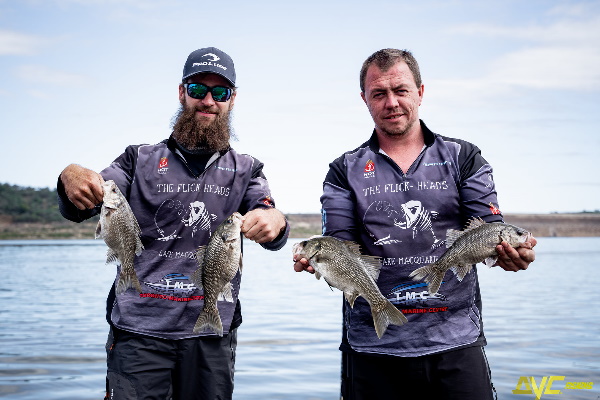
In sport fishing, the main objective is to catch the most fish or the largest fish possible in an organized competition with rules and regulations that help ensure fairness for all participants.
Sport Fishing requires knowledge about the fish species you’re after.
They need to know what kind of bait will work best at any given moment depending on range location depth, temperature factors, etcetera.
To be successful at it, you need experience and practice that can only come from doing this for years on end through hard work in the sun or deep sea waters where fish roam free near tantalizing bait pieces floating just beneath their scales!
You also require specialized equipment to have good results in competition.
Successful tournament anglers need a good understanding of the water conditions and weather patterns which will allow them to strategize their approach for each day’s competition.
Sport fishermen who take part in competitive tournaments strive for high levels of success, often pushing themselves to ack even more than before when successful.
The competition between anglers provides an exciting atmosphere that brings out the best in them – with rewards ranging from prestigious titles to generous prize money!
Benefits of Fishing
Fishing is a great activity for physical and mental health. Being out on the water in nature can be incredibly peaceful, allowing anglers to relax and clear their minds.
It also provides an opportunity to practice patience, focus, and perseverance while they wait for that big catch!
Fishing has many health benefits including improved cardiovascular fitness, bone strength, stress relief, and cognitive development.
It’s a low-impact form of exercise that allows you to get outdoors and enjoy the fresh air – something many people need more of in today’s world!
Living life is all about learning and growing, which means you should never stop trying to learn new things.
And even though many people think they will have food put in front of them their whole lives, I believe it’s important for kids especially (and adults too) to gain experience with getting themselves fed if the need ever arises—you never know what might happen!
Furthermore, fishing teaches us about conservation as it helps promote a healthy ecosystem by supporting natural populations of fish & other aquatic life.
This ensures that our waterways are clean and healthy for generations to come.
In conclusion, fishing is an enjoyable activity that combines relaxation with an opportunity to learn about the environment.
No matter whether “Is fishing a sport or a hobby?”, fishing has something to offer everyone!
Types of Fishing
There are several different types of fishing that can be enjoyed. Here, I will mention some types of fishing that fishing competitions may be aimed at.
Fly Fishing
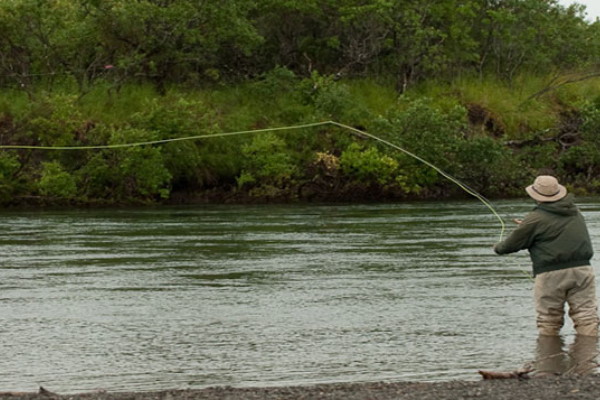
Fly fishing is an angling technique in which an artificial fly is used to catch fish. It typically uses lightweight rods, long lines, and specialized flies that imitate the natural prey of the target species.
It is often considered one of the most challenging yet rewarding forms of fishing due to its technicality and precision required.
Ice Fishing
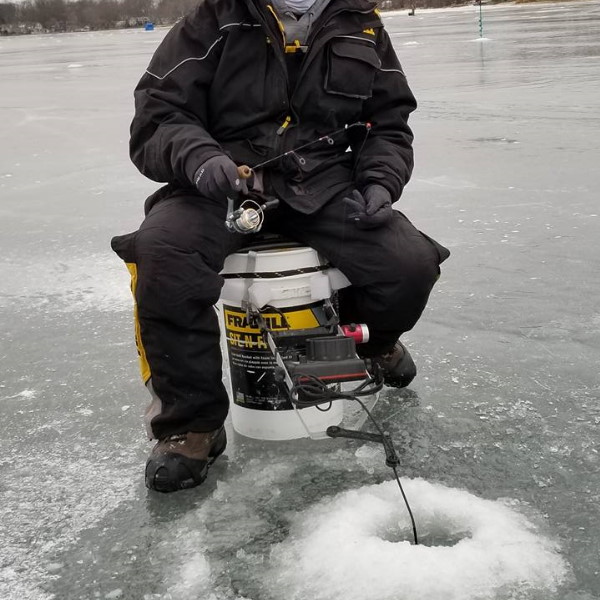
Ice fishing is one of the most popular wintertime activities for anglers who enjoy cold weather climates!
This type of fishing involves drilling holes into frozen bodies of water to access their depths and catch fish that might be present.
It typically requires specialized gear such as ice augers, rods, reels, and shelters to provide comfort while fishing in cold temperatures.
Bass Fishing
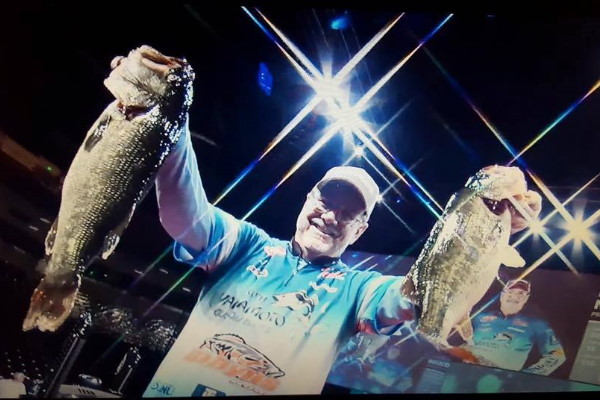
Bass fishing is a competitive sport that involves catching largemouth, smallmouth, and spotted bass.
This type of fishing requires the use of specialized baits and lures to catch these fish in various bodies of water.
Tournament anglers who participate in bass fishing competitions can win big prizes if they’re able to outwit their opponents!
Big Game Fishing
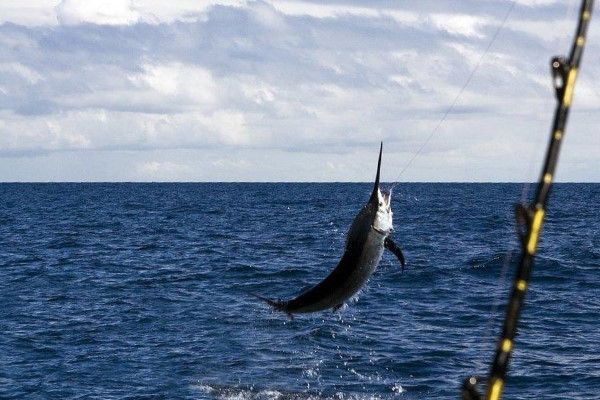
Big game fishing is a type of sport fishing that involves targeting large marine predators such as sharks, billfish, and tuna.
These types of fish are usually targeted with heavier tackles and baits to ensure a successful catch. Big game fishing can be an incredibly exciting experience for anglers who enjoy the thrill of the hunt!
Deep Sea Fishing
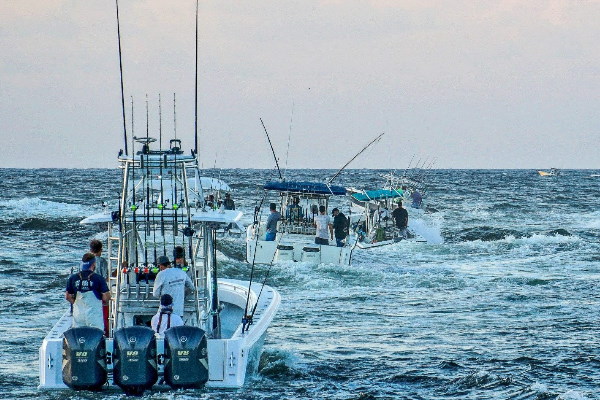
Deep sea fishing is a type of angling that takes place far offshore in the open ocean.
This type of fishing requires specialized equipment due to the depths and conditions being fished in.
Anglers who brave the deep seas may be rewarded with some truly impressive catches!
Trophy Fishing
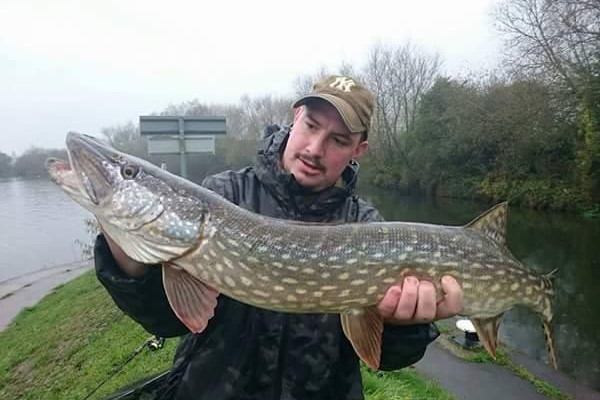
Trophy fishing is a type of angling that involves targeting large game fish in hopes of catching a record-breaking specimen.
Anglers who participate in trophy fishing typically use heavy tackle and specialized techniques to land these prized catches.
These fish are often released after they’ve been weighed and measured, ensuring the integrity of future generations.
Recreational Fishing
Recreational fishing is the most popular type and involves people who go out with friends or family to enjoy the experience.
Commercial Fishing
Professionals typically do commercial fishing for money or other financial rewards. This includes catching large amounts of fish from various sources such as rivers, lakes, and oceans.
These are just some of the many types of fishing, that can be enjoyed by those looking for an enjoyable outdoor experience or the thrill of competition no matter if is fishing a sport.
Fishing is an age-old activity with numerous benefits that continue to draw people from all walks of life! So why not give it a try? You never know what you might reel in!
Interesting Facts about Sports Fishing
The Bassmaster Classic
This was the first major fishing competition in America. It began as an event to promote catch and release.
This event was the first fishing competition broadcast on TV, and it helped establish this sport as popular among Americans before there even were other major competitions here!
The prize pool for competitors has increased exponentially over time.
And you know what? It’ll always be worth watching because whether or not we’re talking conservation-these guys do their best work promoting catch & release techniques while still catching those big boys down deep where nobody else could reach.
High-school sport
Here is another proof of the “Yes” answer to the question “Is fishing a sport?”
USA made the biggest step in presenting fishing as a real sport, equal to many others.
In the 2009-2010 school year, it was recognized by USA High School Athletic Association (HSAA) and participation increased from 200 schools during 1st competition season.
Internet
The Internet has empowered people with the ability to participate in online competitions where they can upload pictures of their catches.
These virtual fishing festivals are not like “real” ones, but it offers an insight into how competitive and passionate fisherman truly feel about this sport!
Promoting fish conservation
Responsible sport fishing is effective in the protection of fish populations. It is important for responsible anglers not only to know about but practice conservation and catch-and-release techniques.
This will enable them – as well as future generations –to enjoy high-quality fishing environments where trophy-size species can thrive without excessive commercial exploitation.
In some less developed countries, locals turn to tourism fishing instead of commercial fishing; it increases fish numbers.
Other fun facts:
• Fishing is one of the oldest activities in human history, dating back 40,000 years.
• The largest fish ever caught was a great white shark measuring 21 feet long and weighing 2,664 pounds!
• Catfish have over 27,000 taste buds while humans only have around 8,000.
• The most expensive fishing rod ever made cost $150,000!
• Fish eyes contain rods and cones just like ours do which allow them to see in both light and dark conditions.
• You can find anglers all over the world as it’s estimated that over 55 million people participate in recreational fishing every year.
• Fish scales are used for a variety of purposes including jewelry, art, and even medical research.
• The oldest fish hook dates back to 16,000 years ago!
• Fishing is an important part of many cultures as it’s been used for both sustenance and spiritual purposes.
• Different types of fishing can be enjoyed all around the world from deep sea fishing in oceans to freshwater angling in lakes and rivers.
• Fish are considered the most diverse group of vertebrates on our planet with over 33,600 species known today!
These facts just scratch the surface when it comes to understanding the world of sports fishing. From its ancient roots to its modern-day forms, there’s something for everyone who takes part! So whether you’re looking for an enjoyable pastime or a thrilling competition, fishing is the perfect activity to sink your hook into!
Conclusion
Fishing is a sport. It has been around for centuries and people have enjoyed it for the challenge, relaxation, and companionship it provides.
The benefits of fishing are many, which is why it continues to be one of the most popular recreational activities in the world.
Whether you’re a seasoned fisherman or just getting started, we hope this article has given you a better understanding of what sport fishing is all about.
What do you think? Is fishing a sport or hobby? Leave us a comment and let us know!
Thanks for reading our article. If you have any questions, leave a comment below. You can see more posts on our website here.
Further reading
A Beginner’s Guide to Deep Sea Fishing
